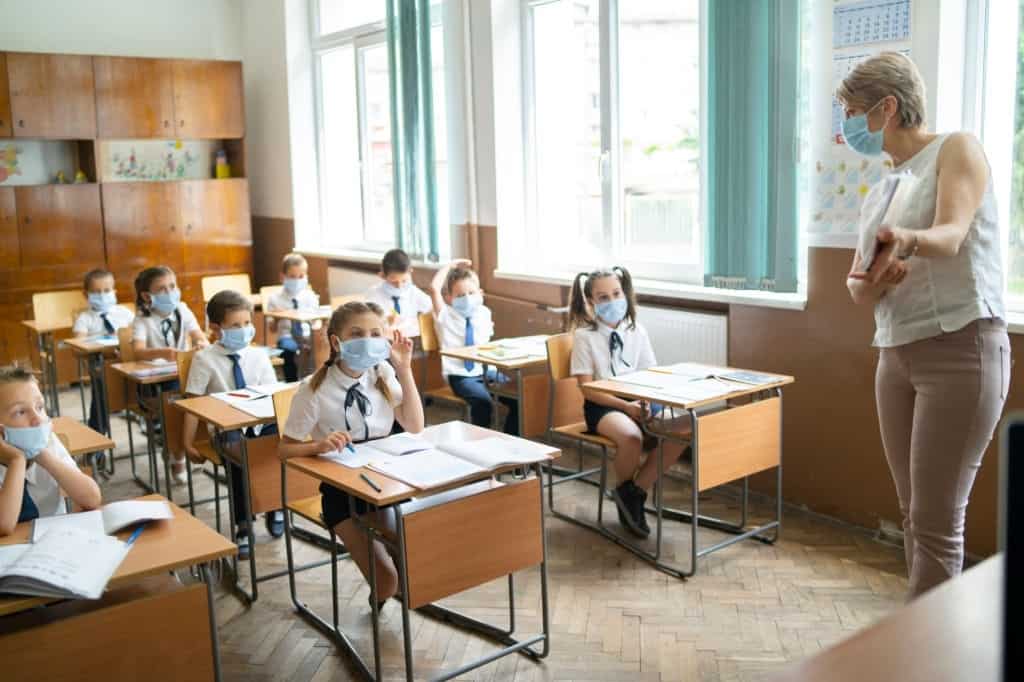Schools Reopening: Delta Variant Shoots Up Cases Among Children Tenfold
Nikki Attkisson | Last Updated : September 11, 2021Last week recorded the highest COVID-19 cases in children as their schools reopened after the holiday of Labor Day. As kids are subjected to in-person learning, they are being exposed to lethal infection.
According to The American Academy of Pediatrics and Children’s Hospital Association’s updated report, the last week of 2nd September saw the highest cases in children, with around 27% of the total coronavirus cases.
Schools Reopening: Delta Variant Shoots Up Cases Among Children Tenfold
The report said that the rate of infection in children declined in early summer but increased to more than 750,000 between 5th August and 2nd September.

According to the new data, the cases in children have shot up to 10% in the last fifteen days. Since the onset of the pandemic, more than 5 million cases in children have been reported.
Many parents have already allowed their kids to offline classes, and many are planning to do so this week. But as the regions with low vaccination rates are reporting the highest cases among children, many schools are forced to shut down.
Health officials of the United States have mandated masking up in schools and urged everyone around children of age 12 years and above or who are eligible to get fully vaccinated to protect children.
The National Institute of Allergy and Infectious Diseases, Dr. Anthony Fauci, told CNN that it has become important to get the school system that mandates masking up and surrounding eligible people to get vaccinated. He added that is the only solution.
According to the US Centers for Disease Control and Prevention’s data, from June end to mid-August, the rate of hospitalizations among children and adolescents shot up five times fueled by the delta variant.
The report from CHA and AAP states that severe illness caused by COVID-19 is still not common in children. There is a need to study more on the pandemic’s long-term impact on kids, including if and how it can affect the physical, emotional, and mental health of children.
According to studies by the Centers for Disease Control and Prevention, a highly contagious delta variant is the main reason behind the high hospitalizations rate. However, it is still uncommon for the delta variant to make children severely ill.
The director of CDC, Rochelle Walensky, said that even if cases arise, there isn’t high severity in children. More kids contract the virus because of community transmission.
Studies also note that eligible adolescents who had to be hospitalized remained unvaccinated. The number was ten times higher than those who were fully vaccinated against the virus.
It is hoped that by this fall, children between the age of 5 to 11 years of age will be eligible to get shots of COVID-19 vaccines under emergency authorization. This means that parents should get ready to have their kids vaccinated as soon as they can.
Evidence suggests that huge numbers of kids are experiencing adverse impacts on their mental health. Depression and anxiety are rising. Reports say that more than 37,000 kids have lost at least one parent to the pandemic.
Though relatively low, the suffering of children has occurred. The impact will have lifelong consequences that will continue to ravage our societies for coming generations.
Young children can as easily spread the COVID-19 virus as adults. It means that higher rates of infection in children can easily be transmitted to the adult population and vice-versa. It is also possible that they will become a factor in mutating the virus.
Indeed, parents want only what is best for their children. And once vaccinations for kids are authorized, many parents would be reluctant and won’t want to put vaccines in their kids’ bodies.
With over 15 years as a practicing journalist, Nikki Attkisson found herself at Powdersville Post now after working at several other publications. She is an award-winning journalist with an entrepreneurial spirit and worked as a journalist covering technology, innovation, environmental issues, politics, health etc. Nikki Attkisson has also worked on product development, content strategy, and editorial management for numerous media companies. She began her career at local news stations and worked as a reporter in national newspapers.